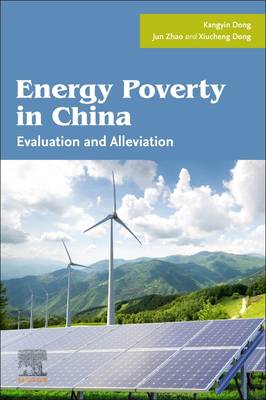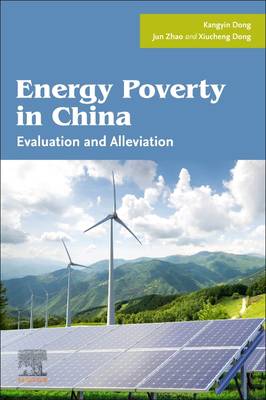
- Afhalen na 1 uur in een winkel met voorraad
- Gratis thuislevering in België vanaf € 30
- Ruim aanbod met 7 miljoen producten
- Afhalen na 1 uur in een winkel met voorraad
- Gratis thuislevering in België vanaf € 30
- Ruim aanbod met 7 miljoen producten
Energy Poverty in China
Evaluation and Alleviation
Kangyin Dong, Jun Zhao, Xiucheng DongOmschrijving
Energy Poverty in China: Evaluation and Alleviation offers a thorough, methodological approach to energy poverty, which is a major obstacle in terms of the green or low-carbon transition of energy systems in China. The authors follow the framework of measurement, potential impact, and alleviation paths, supporting the design of effective energy and environmental policies for a globalized nation, especially considering the low-carbon transition of energy structures and energy poverty alleviation in the context of carbon neutrality.
The book begins by providing an overview of energy poverty, explaining the concept, summarizing the current situation globally and in China, and introducing the approach of the authors. The second chapter looks to build a comprehensive index system for the calculation of energy poverty in China. This is followed by three chapters that apply a range of methods to empirically assess the economic, environmental, and social effects of energy poverty. Individual chapters then explore specific alleviation paths, including digital economy, technological innovation, low-carbon energy transition, inclusive finance, and coal-to-gas/electricity policy.
This book is of interest to all those with an interest in energy poverty, energy and environmental policy, energy economics, carbon emission reduction, green growth, energy transition and renewable energy, including researchers, scientists, advanced students, engineers, R&D professionals, and policy makers or other experts at governmental or non-governmental organizations.
Specificaties
Betrokkenen
- Auteur(s):
- Uitgeverij:
Inhoud
- Aantal bladzijden:
- 352
- Taal:
- Engels
Eigenschappen
- Productcode (EAN):
- 9780443158032
- Verschijningsdatum:
- 23/01/2023
- Uitvoering:
- Paperback
- Formaat:
- Trade paperback (VS)
- Afmetingen:
- 152 mm x 229 mm
- Gewicht:
- 471 g

Alleen bij Standaard Boekhandel
Beoordelingen
We publiceren alleen reviews die voldoen aan de voorwaarden voor reviews. Bekijk onze voorwaarden voor reviews.











